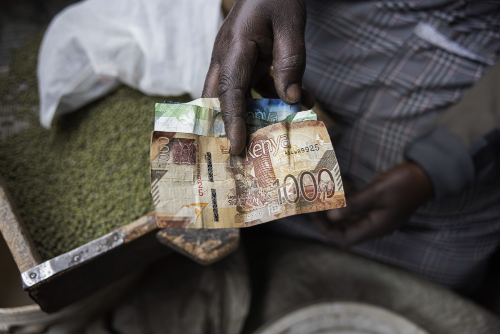Kenyan central bank surprises with first rate cut in over four years

TLDR
- Kenya's central bank cuts benchmark interest rate for the first time in over four years, anticipating low inflation in the near term.
- Monetary Policy Committee reduces key rate to 12.75% from 13% in response to headline inflation reaching a four-year low.
- Previous measures have stabilized exchange rate, anchored inflation expectations; MPC will monitor policy impact and take further action as needed.
Kenya’s central bank surprised financial markets by cutting its benchmark interest rate for the first time in more than four years, anticipating that inflation will remain below the midpoint of its target range in the near term.
The Monetary Policy Committee (MPC) lowered the key rate to 12.75% from 13%, as announced by Governor Kamau Thugge on Tuesday. This decision follows headline inflation slowing to a four-year low, after two previous monetary policy meetings where the Central Bank Rate was left unchanged.
"The MPC noted that its previous measures have lowered overall inflation to below the mid-point of the target range, stabilized the exchange rate, and anchored inflationary expectations," the central bank said in a statement.
Key Takeaways
Kenya’s rate cut mirrors a global trend of easing monetary policies aimed at fostering economic stability. As global inflation moderates and geopolitical tensions persist, Kenya's strategy highlights the delicate balance nations must maintain. Enhanced global growth prospects in the US, China, and India could further boost Kenya's trade and investment opportunities. Investors should note Kenya's improved economic outlook. The real GDP growth in Q1 2024 and the projected 5.4% annual growth suggest a stable investment climate. The reduced current account deficit and rising goods exports, mainly from agriculture, signal a promising scenario. However, recent protests and high business costs pose potential risks, requiring cautious optimism.

Next Frontier
Stay up to date on major news and events in African markets. Delivered weekly.
Pulse54
UDeep-dives into what’s old and new in Africa’s investment landscape. Delivered twice monthly.
Events
Sign up to stay informed about our regular webinars, product launches, and exhibitions.




